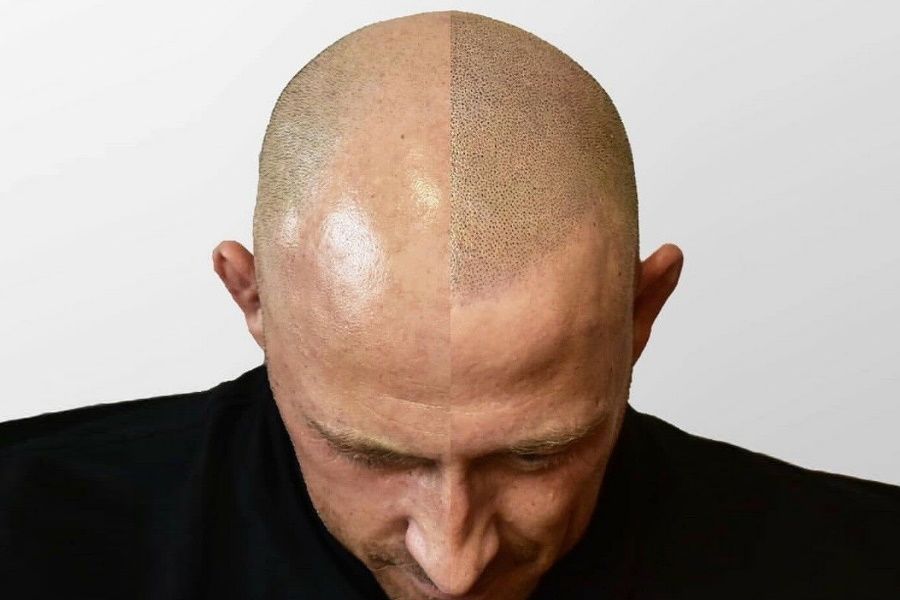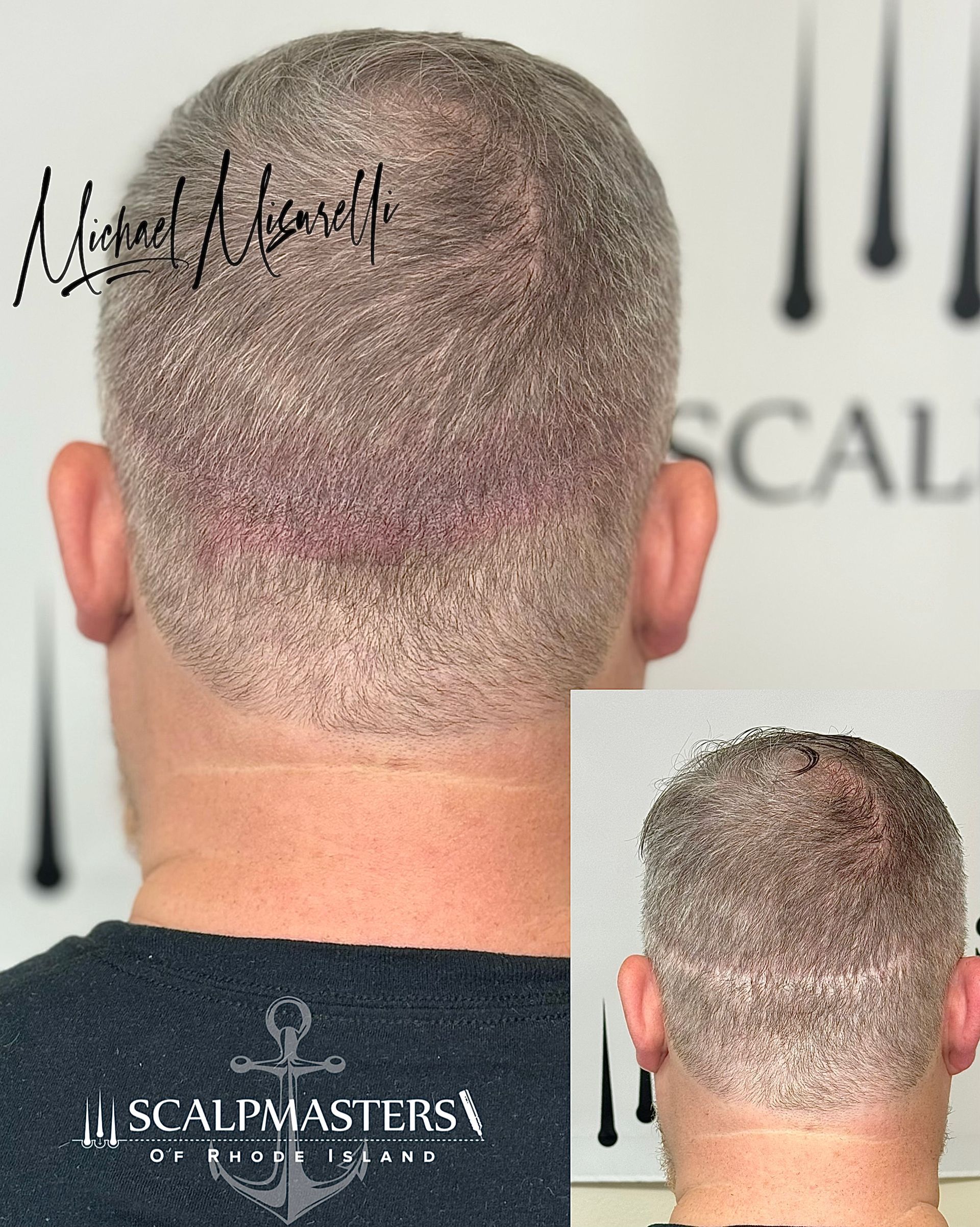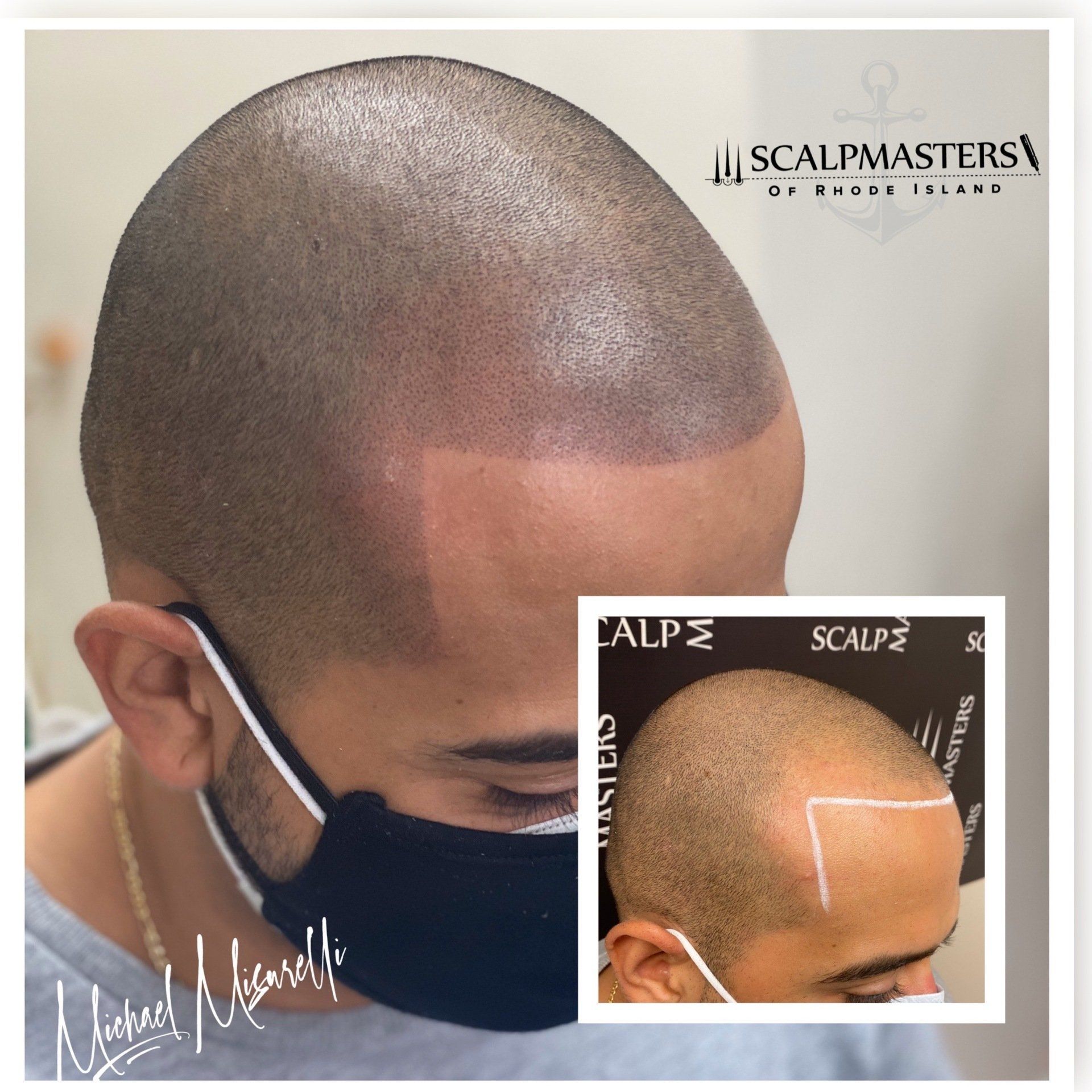The Link Between High Protein Diet & Hair Loss
There are a number of factors that may cause hair loss, and they can be divided into genetic reasons, or lifestyle reasons, such as your diet. Problems with certain autoimmune diseases, a lack of medical treatment, and heredity hair loss can cause you to lose hair. If you have significant hormonal fluctuations, or problems with your thyroid function, these can lead to hair loss as well.
Dietary reasons for hair loss can be more difficult to pinpoint. If you are missing any number of vitamins or minerals in your diet, this can lead to hair loss. Unfortunately, there are also links between a high protein diet and hair loss. Excess vitamins and mineral can also cause you to lose hair, so it's hard to figure out what is going on without a careful look at your diet and any supplement intake.
Can Too Much Protein Cause Hair Loss?
If you are asking, does too much protein cause hair loss, the simple answer is yes. The problem is you need enough protein for your hair to grow adequately, because your hair follicles mainly consist of protein. When you aren't getting enough energy from your food intake, one of the first things to shut down can be hair follicles, so you don't waste energy.
There is a clear connection between too little protein and hair loss. The issue is that there is also a connection between a high protein diet and hair loss. Finding the right balance is essential when you are dealing with hair loss, and it is important to figure out what the cause of your hair loss is. Biotin supplements can help when you are experiencing hair loss, but this is only when you are not getting enough biotin in your diet from the foods you eat.
A high protein diet means you are no longer eating a significant amount of carbohydrates in your diet. The carbohydrates you eat are used for fuel, and without carbohydrates, you can see thinning hair occur. When you are not consuming carbohydrates, which your body prefers for energy, it turns to stored fats and proteins within your body. This includes your hair follicles, and can cause you to start losing hair.
Diets that are low in carbohydrate and high in protein can make it difficult to get the amino acids you need for good hair growth. Without the right amino acids in your diet, you will start to see hair loss. If you are a calorie restrictive diet to lose weight, your body can go into a state of ketosis and starts to burn ketones for energy instead of the calories you are consuming. This can cause you to lose biotin, and this may lead to hair loss in some people.
Nutritional deficiencies of any kind can cause you to lose hair. There is a delicate balance in your body, and excessive amounts or a lack of nutrients can cause a variety of problems, including hair loss. If you notice that you are losing hair, and you have just changed your diet drastically, it's time to speak to your doctor about the changes you have made.
The Link Between High Protein Diets and Hair Loss
It is important to understand that too much protein can cause hair loss, but hair loss can also occur when you don't eat enough protein in your diet. A significant change in your eating habits can lead to problems with hair loss, poor nutrition, and trouble digesting nutrients. When the body needs to try and conserve energy because it is not getting energy from calories, hair follicles will rest in an effort to save protein.
Protein buildup is a problem when you eat diets that are too high in protein, and you may see major changes to your hair and how it grows. Common signs of protein buildup include:
- Hair that breaks off easily.
- Hair is tough, and may feel like straw.
- The hair doesn't condition well, and is lifeless.
- There's no longer a shine to you hair.
- It's harder to brush your hair, and you struggle with tangles.
Although a diet high in protein can be an excellent way to lose weight, they can cause damage to your hair and how it grows.
Hair Loss & Major Dietary Changes
When you cut out large amounts of food from your diet, you are going to set off a nutrient deficiency in your body. While a restrictive diet will help you lose weight, your body is going to become stressed if you go into a crash diet that is highly restrictive. You can experience hair loss if you don't have enough selenium, iron, zinc, essential fatty acids, or protein in your diet, so it is important that you pay attention to how you try to lose weight.
If you are worried about hair loss while on a diet, you should:
- Take your time while losing weight. When you lose weight slowly, you are less likely to experience problems such as hair loss.
- Eat enough protein and iron for your body, as they are essential to your overall health. Pay attention that you don't get too much protein.
- Watch out for too much Vitamin A in your diet, as this can cause hair loss.
When you go on a restrictive diet, this can cause your hair follicles to start to rest. Understand that hair has a three stage life cycle. Hair grows, rests, and then sheds. The hair follicle will once again start to produce a new hair after the shedding stage. Your hair follicles may go into an early resting and then shedding stage if you shock the body with a severely restrictive diet.
Hair Loss Beyond Dietary Changes
If you experience thinning hair or hair loss, and you haven't changed your diet, there are medical conditions or genetic problems that can cause hair loss to occur. Common causes of hair loss that are not related to your diet include:
- Hair loss caused by androgenetic alopecia, a condition that occurs in both men and women.
- A hormonal imbalance, stress, or illness.
- Giving birth can result in temporary hair loss.
- Haircare that is rough, or styles that pull on the scalp.
- Alopecia areata.
- Aging can lead to hair loss.
Some prescription medications can lead to hair loss, including: birth control pills, weight loss medication, depression treatment, blood thinners or steroids. For women who are younger than 35, nutritional deficiencies are usually the cause of hair loss. Medication used to treat certain cancers, high blood pressure, heart conditions and arthritis can also cause you to lose hair over time.
Solutions to Hair Loss
While there is no cure for male pattern baldness, it is possible to slow down or stop the progression of hair loss with certain treatments. Minoxidil and finasteride are both medications that may help you grow back some lost hair that is caused from male pattern baldness. You can try a number of other methods to try and help your hair remain thick, or follicles to stay stimulated.
A diet rich in vitamins is recommended for good hair growth. Scalp massage can help to stimulate hair follicles into growing, as can essential oils. Folic acid supplements can promote hair growth, as can multivitamins and anti-thinning shampoo. A diet rich in omega-3 and omega-6 fatty acids is helpful if you are concerned about hair loss.
Your hair cells need to have protein, iron, and complex carbohydrates in order to grow. A balanced diet will help your body function better, including the process of hair growth. If you aren't getting enough Folate in your diet, this can lead to hair loss. For those who are vegetarians or vegan, it is important to eat protein in the form of seeds, nuts and legumes in order to avoid any deficiencies. Folate is found in beans and in leafy green vegetables, essential components of a healthy diet.
Finding the Help You Need
At Scalpmasters, we understand that you are concerned about hair loss. If you are looking for viable options, it's time to learn more about scalp micropigmentation for a full looking head of hair. Contact Scalpmasters of Rhode Island today to learn more about the hair restoration services we offer.
Learn More
What's New
Latest Hair Loss Solutions & Guides




